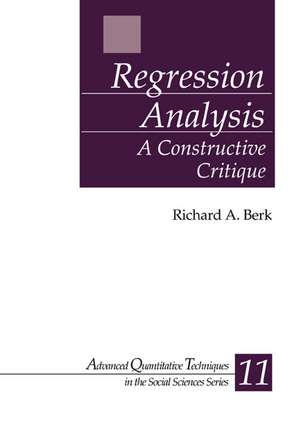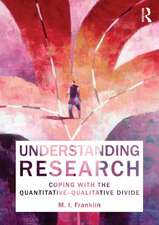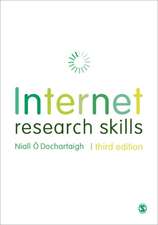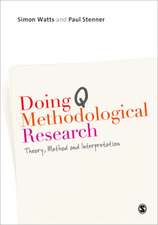Regression Analysis: A Constructive Critique: Advanced Quantitative Techniques in the Social Sciences, cartea 11
Autor Richard A. Berken Limba Engleză Hardback – 27 aug 2003
`I have been waiting for a book like this for some time. Practitioners, especially those doing applied work, will have much to gain from Berk's volume, regardless of their level of statistical sophistication. Graduate students in sociology, education, public policy, and any number of similar fields should also use it. It will also be a useful foil for conventional texts for the teaching of the regression model. I plan to use it for my students as a text, and hope others will do the same' - Herbert Smith, Professor of Demography and Sociology, University of Pennsylvania
Regression is often applied to questions for which it is ill equipped to answer. As a formal matter, conventional regression analysis does nothing more than produce from a data set a collection of conditional means and conditional variances. The problem, though, is that researchers typically want more: they want tests, confidence intervals and the ability to make causal claims. However, these capabilities require information external to that data themselves, and too often that information makes implausible demands on how nature is supposed to function. Convenience samples are treated as if they are random samples. Causal status is given to predictors that cannot be manipulated. Disturbance terms are assumed to behave not as nature might produce them, but as required by the model.
Regression Analysis: A Constructive Critique identifies a wide variety of problems with regression analysis as it is commonly used and then provides a number of ways in which practice could be improved. Regression is most useful for data reduction, leading to relatively simple but rich and precise descriptions of patterns in a data set. The emphasis on description provides readers with an insightful rethinking from the ground up of what regression analysis can do, so that readers can better match regression analysis with useful empirical questions and improved policy-related research.
`An interesting and lively text, rich in practical wisdom, written for people who do empirical work in the social sciences and their graduate students' - David A Freedman, Professor of Statistics, University of California, Berkeley
Preț: 784.02 lei
Preț vechi: 1074.00 lei
-27% Nou
Puncte Express: 1176
Preț estimativ în valută:
150.02€ • 157.03$ • 124.87£
150.02€ • 157.03$ • 124.87£
Carte tipărită la comandă
Livrare economică 31 martie-14 aprilie
Preluare comenzi: 021 569.72.76
Specificații
ISBN-13: 9780761929048
ISBN-10: 0761929045
Pagini: 280
Dimensiuni: 152 x 229 x 20 mm
Greutate: 0.49 kg
Ediția:New.
Editura: SAGE Publications
Colecția Sage Publications, Inc
Seria Advanced Quantitative Techniques in the Social Sciences
Locul publicării:Thousand Oaks, United States
ISBN-10: 0761929045
Pagini: 280
Dimensiuni: 152 x 229 x 20 mm
Greutate: 0.49 kg
Ediția:New.
Editura: SAGE Publications
Colecția Sage Publications, Inc
Seria Advanced Quantitative Techniques in the Social Sciences
Locul publicării:Thousand Oaks, United States
Recenzii
"Berk has incisively identified the various strains of regression abuse and suggests practical steps for researchers who desire to do good social science while avoiding such errors."
"I have been waiting for a book like this for some time. Practitioners, especially those doing applied work, will have much to gain from Berk's volume, regardless of their level of statistical sophistication. Graduate students in sociology, education, public policy, and any number of similar fields should also use it. It will also be a useful foil for conventional texts for the teaching of the regression model. I plan to use it for my students as a text, and hope others will do the same."
"An interesting and lively text, rich in practical wisdom, written for people who do empirical work in the social sciences and their graduate students."
"This book lives up to its subtitle as a "constructive critique" that complements the more standards "how-to" treatments of regression, and I hope that many students and practitioners will be inspired by it to think harder about the connections between their data analysis, their statistical models, and their social science research goals." —CRIMINAL JUSTICE REVIEW
"I have been waiting for a book like this for some time. Practitioners, especially those doing applied work, will have much to gain from Berk's volume, regardless of their level of statistical sophistication. Graduate students in sociology, education, public policy, and any number of similar fields should also use it. It will also be a useful foil for conventional texts for the teaching of the regression model. I plan to use it for my students as a text, and hope others will do the same."
"An interesting and lively text, rich in practical wisdom, written for people who do empirical work in the social sciences and their graduate students."
"This book lives up to its subtitle as a "constructive critique" that complements the more standards "how-to" treatments of regression, and I hope that many students and practitioners will be inspired by it to think harder about the connections between their data analysis, their statistical models, and their social science research goals." —CRIMINAL JUSTICE REVIEW
Cuprins
Preface
1. Prologue: Regression Analysis as Problematic
2. A Grounded Introduction to Regression Analysis
3. Simple Linear Regression
4. Statistical Inference for Simple Linear Regression
5. Causal Inference for the Simple Linear Model
6. The Formalities of Multiple Regression
7. Using and Interpreting Multiple Regression
8. Some Popular Extensions of Multiple Regression
9. Some Regression Diagnostics
10. Further Extensions of Regression Analysis
11. What to Do
1. Prologue: Regression Analysis as Problematic
2. A Grounded Introduction to Regression Analysis
3. Simple Linear Regression
4. Statistical Inference for Simple Linear Regression
5. Causal Inference for the Simple Linear Model
6. The Formalities of Multiple Regression
7. Using and Interpreting Multiple Regression
8. Some Popular Extensions of Multiple Regression
9. Some Regression Diagnostics
10. Further Extensions of Regression Analysis
11. What to Do
Descriere
Regression Analysis: A Constructive Critique identifies a wide variety of problems with regression analysis as it is commonly used and then provides a number of ways in which practice could be improved. Regression is most useful for data reduction, leading to relatively simple but rich and precise descriptions of patterns in a data set. The emphasis on description provides readers with an insightful rethinking from the ground up of what regression analysis can do, so that readers can better match regression analysis with useful empirical questions and improved policy-related research.
"An interesting and lively text, rich in practical wisdom, written for people who do empirical work in the social sciences and their graduate students."
--David A. Freedman, Professor of Statistics, University of California, Berkeley
"An interesting and lively text, rich in practical wisdom, written for people who do empirical work in the social sciences and their graduate students."
--David A. Freedman, Professor of Statistics, University of California, Berkeley


















